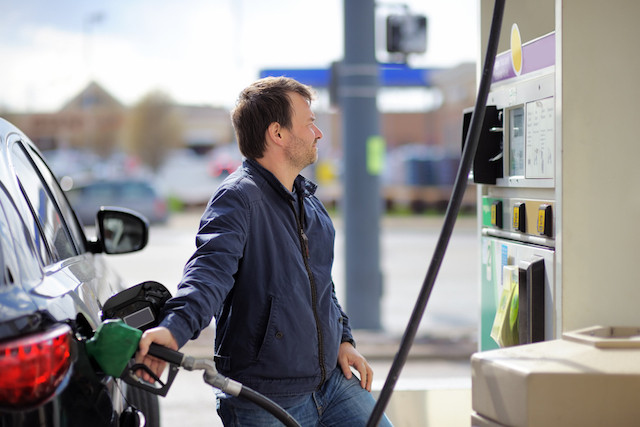In a joint response to a parliamentary question with Claude Turmes, the energy minister (Déi Gréng), and finance minister Pierre Gramegna (DP), they said an increase in excise duties was scheduled for the 2019 budget. “The exact increase will depend on the results of the evolution of fuel sales and its influence on the objectives set in relation to reducing CO2 emissions,” the joint response read.
Low fuel taxes mean that Luxembourg has among the cheapest fuel in Western Europe, prompting some motorists from neighbouring countries to go out of their way to travel to the grand duchy to refuel. The low taxes have been criticised in the past, both domestically and in a 2016 European Commission review.
The cabinet members further said that an interministerial committee would be formed to monitor the evolution of fuel sales in line with government CO2 reduction measures. “This committee will suggest fair and proportionate measures to be taken in relation to climate protection objectives.” The question, put forward by Gilles Roth (CSV) and Martine Hansen (CSV), came in a flurry of others in relation to Luxembourg air quality and pollution.
Responding to a parliamentary question (from Mars di Bartolomeo and Georges Engel--both LSAP) about the cars used in Luxembourg in reference to the emissions cheating scandal known as Dieselgate, mobility minister François Bausch (Déi Gréng) said people are buying fewer diesel vehicles. In 2018, less than half of all new cars registered had diesel motors, down from 70% in 2015. In 2018, diesel engine vehicles made up 61.6% of all vehicles in Luxembourg.
Besides motor vehicles, coal-fired power stations also contribute to soiling Luxembourg’s air. In another parliamentary question (from David Wagner and Marc Baum, both Déi Lénk), environment minister Dieschbourg said that German coal-fired power stations contributed to 1.2% of the country’s pollution. “Taking into account the WHO line on fine particulate matter PM2.5 in ambient air and the fact that the European Environment Agency found PM2.5 was responsible for 240 premature deaths in 2015, we can confirm a certain risk to health on the Luxembourg population,” Dieschbourg wrote.
